热身 Warm-up
1 给下面的词语选择对应的图片 Match the pictures with the words.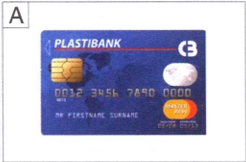
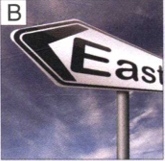
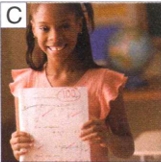
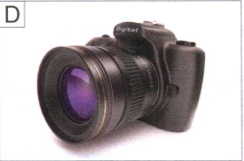

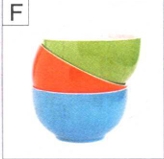
2 连线:把动词和宾语连起来
Draw lines to match the verbs with the objects.课文 Texts 1 在休息室 In the lounge 20-1
小丽:我的照相机被谁拿走了?怎么找不到了?
同事:你再找找。是不是没带来?
小丽:我找了,没找到啊。
同事:别难过,再买一个吧,公司东门外不就有一个大商场吗?
小丽:但是我这个月信用卡里的钱已经花得差不多了。
生词 New Words
1. 照相机 zhàoxiāngjī n. camera
2. 被 bèi prep. used to indicate the passive voice
3. 难过 nánguò adj. sad
4. 东 dōng n. east
5. 信用卡 xìnyòngkǎ n. credit card
2 在教室 In the classroom 20-2
小明:你怎么突然关心起体育来了?
朋友:我的男朋友喜欢看足球比赛,我被他影响的。
小明:看来只有爱,才能让人有变化。
朋友:是啊,为了和他的爱好一样,我天天看球赛。
小明:除了足球,他还影响你什么了?
朋友:我最近天天上网玩儿游戏,我的成绩差极了。
生词 New Words
6. 关心 guānxīn v. to care for, to be interested in
7. 只有……才…… zhǐyǒu……cái…… conj. only… (that/can…)
8. 成绩 chéngjì n. grade, performance, achievement
3 在饭馆 In the restaurant 20-3
朋友:那个拿着碗吃饭的人是你哥哥吗?他和你长得真像。
大卫:我们经常被别人认错。
朋友:只有你们的爸爸妈妈才能分出来哪个是哥哥,哪个是弟弟吧。
大卫:除了父母以外,还有我们自己也能啊。
朋友:你们两个除了长得像,还有什么相同的地方?
大卫:我们住在同一个楼、同一个房间……
生词 New Words
9. 碗 wǎn n. bowl
10. 分 fēn v. to distinguish
4 年轻人遇到难题,常常很着急,不知道怎么办。其实,不同的问题有不同的解决办法。有些问题看上去很难,但是做起来非常简单,所以得试着做做。有些问题看上去虽然简单,但是解决起来难极了。所以只有真正做事情的时候,才能了解有多难。不过,我们一定要相信:多么难的问题,都会被解决的。
生词 New Words
- 11. 解决 jiějué v. to solve
- 12. 试 shì v. to try
- 13. 真正 zhēnzhèng adv. really, truly
- 14. 多么 duōme adv. very, to a great extent
拼音课文 Texts in Pinyin
1、Zài xiūxíshì
Xiǎolì: Wǒ de zhàoxiàngjī bèi shéi názǒu le? Zěnme zhǎo bu dào le?
tóngshì: Nǐ zài zhǎozhao. Shì bu shì méi dàilái?
Xiǎolì: Wǒ zhǎo le, méi zhǎodào a.
tóngshì: Bié nánguò, zài mǎi yí gè ba, gōngsī dōngmén wài bú jiù yǒu yí gè dà shāngchǎng ma?
Xiǎolì: Dànshì wǒ zhège yuè xìnyòngkǎ lǐ de qián yǐjīng huā de chà bu duō le.
2、Zài jiàoshì
Xiǎomíng: Nǐ zěnme tūrán guānxīn qǐ tǐyù lái le?
péngyou: Wǒ de nánpéngyǒu xǐhuan kàn zúqiú bǐsài, wǒ bèi tā yǐngxiǎng de.
Xiǎomíng: Kànlái zhǐyǒu ài, cái néng ràng rén yǒu biànhuà.
péngyou: Shì a, wèile hé tā de àihào yíyàng, wǒ tiāntiān kàn qiúsài.
Xiǎomíng: Chúle zúqiú, tā hái yǐngxiǎng nǐ shénme le?
péngyou: Wǒ zuìjìn tiāntiān shàng wǎng wánr yóuxì, wǒ de chéngjì chà jí le.
3、Zài fànguǎnr
péngyou: Nàge nàzhe wánr chī fàn de rén shì nǐ gēge ma? Tā hé nǐ zhǎng de zhēn xiàng.
Dàwèi: Wǒmen jīngcháng bèi biérén rèncuò.
péngyou: Zhǐyǒu nǐmen de bàba māma cái néng fēn chulai nàge shì gēge, nàge shì dìdi ba.
Dàwèi: Chúle fùmǔ yǐwài, hái yǒu wǒmen zìjǐ yě néng a.
péngyou: Nǐmen liǎng gè chúle zhǎng de xiāng, hái yǒu shénme xiāngtóng de dìfang?
Dàwèi: Wǒmen zhù zài tóng yí gè lóu, tóng yí gè fángjiān……
4、Niánqīng rén yùdào nántí, chángcháng hěn zháo jí, bù zhīdào zěnme bàn. Qíshí, bù tóng de wèntí yǒu bù tóng de jiějué bànfǎ. Yǒuxiē wèntí kàn shàngqu hěn nán, dànshì zuò qǐlái fēicháng jiǎndān, suǒyǐ děi zhìzhē zuòzuo. Yǒuxiē wèntí kàn shàngqu suīrán jiǎndān, dànshì jiějué qǐlái jiù bù róngyì le, suǒyǐ zhǐyǒu zài zhēnzhèng zuò shìqing de shíhou, cái jiěliǎo jiějú yǒu duō nán. Búguò, wǒmen yídìng yào xiāngxìn: dōume nán de wèntí, dōu huì bèi jiějué de.
注释 Notes
1 “被” 字句 The Bei-Sentence
汉语中,可以用带 “被” 的句子表达被动意义,其结构形式为 “主语 + 被/叫/让 + 宾语 + 动词 + 其他成分”。其中主语一般是动作的接受者,宾语一般是动作的发出者。“被” 字后边的宾语可以省略,“叫”“让” 后边必须有宾语。
例如:
In Chinese, a sentence with “被” can express the passive voice, its structure being “S + 被/叫/让 + O + V + Other Elements”, in which the subject is the patient of the action and the object the agent. The object following “被” can be left out, while the object after “叫”or “让” cannot. For example:
| 主语 | 被/叫/让 | 宾语 | 动词 | 其他 |
|---|---|---|---|---|
| 我 | 被 | 男朋友 | 影响 | 了。 |
| 帽子 | 被 | 别 | 跑 | 了。 |
| 蛋糕 | 让 | 弟弟 | 吃完 | 了。 |
| 我的照相机 | 被 | 谁 | 拿走 | 了? |
注意,否定副词和能愿动词等应该放在 “被” 的前边,例如:
Note that negative adverbs and modal verbs should precede “被” if there are any. For example:
- 问题还没有被解决呢。
- 病人还没被送到医院呢。
- 下个月她会被妈妈送到美国。
- 我们经常被别人认错。
练一练 Practise
用提示词完成对话 Complete the dialogues with the words given.
-
A: 你的自行车呢?
B:
-
A: 你怎么没带照相机?
B:
-
A: 我刚买的咖啡呢?
B:
2 只有……才…… The Structure “只有……才……”
“只有……才……” 连接的是一个条件复句,“只有” 后边是唯一的条件,“才” 后边是在这个条件下才会出现的结果。例如:
“只有……才……” is used to connect the two clauses of a conditional complex sentence, with “只有” introducing the one and only condition and “才” followed by the result which will be reached only if the said condition is met. For example:
(1)只有写完作业,才能看电视。
(2)只有妈妈做的饭,她才爱吃。
(3)只有爸爸、妈妈才能分出来。
(4)看来只有爱,才能让人有变化。
● 练一练 Practise
完成对话 Complete the dialogues.
(1)A: 你怎么学得这么认真?
B: 妈妈说,只有学得好,才__________。
(2)A: 最近你怎么吃得越来越少?
B: 男朋友说,只有__________,穿衣服才漂亮。
(3)A: 你怎么又出去锻炼啊?
B: 爸爸说,只有常常锻炼,身体__________。

Comments